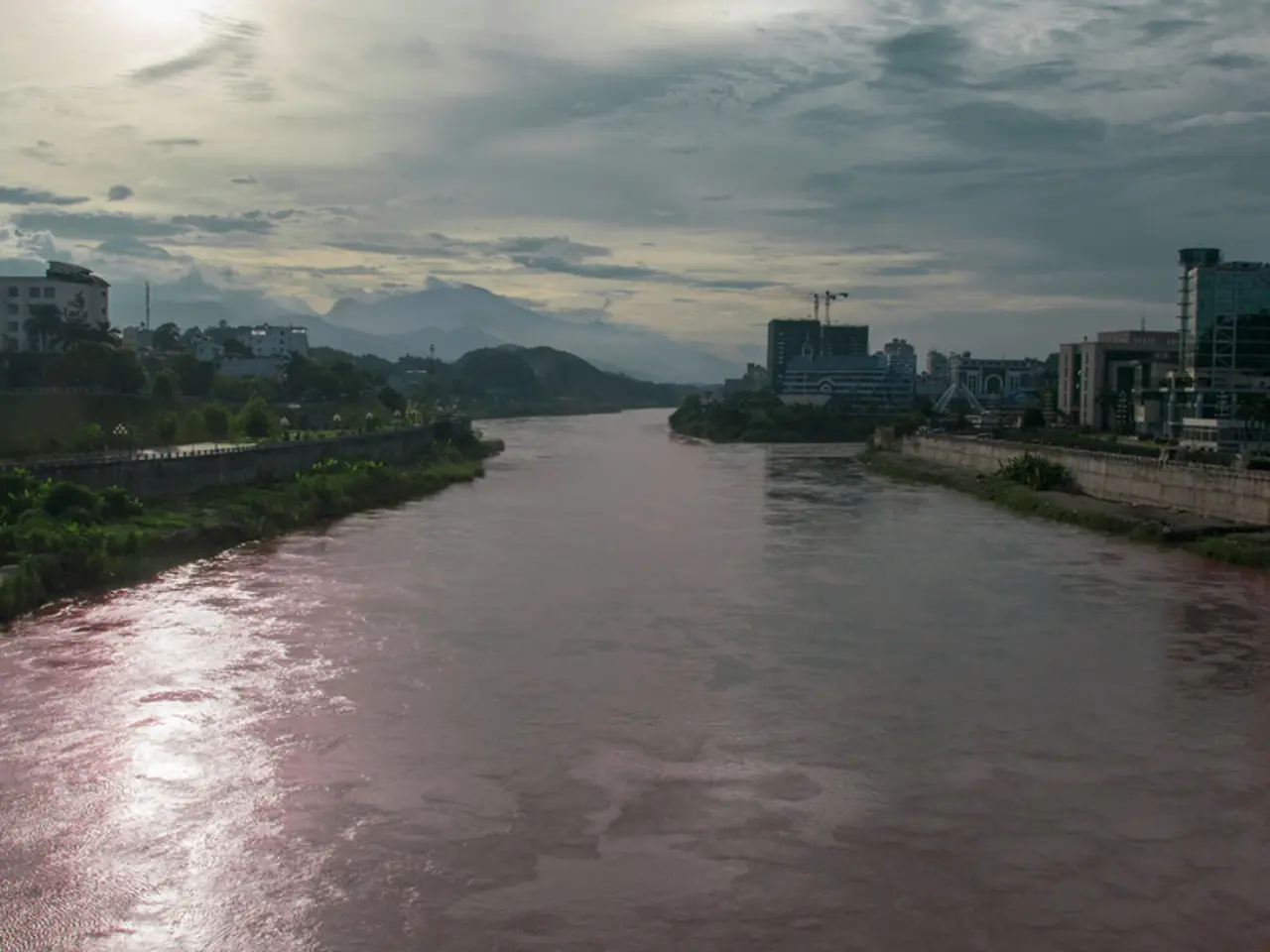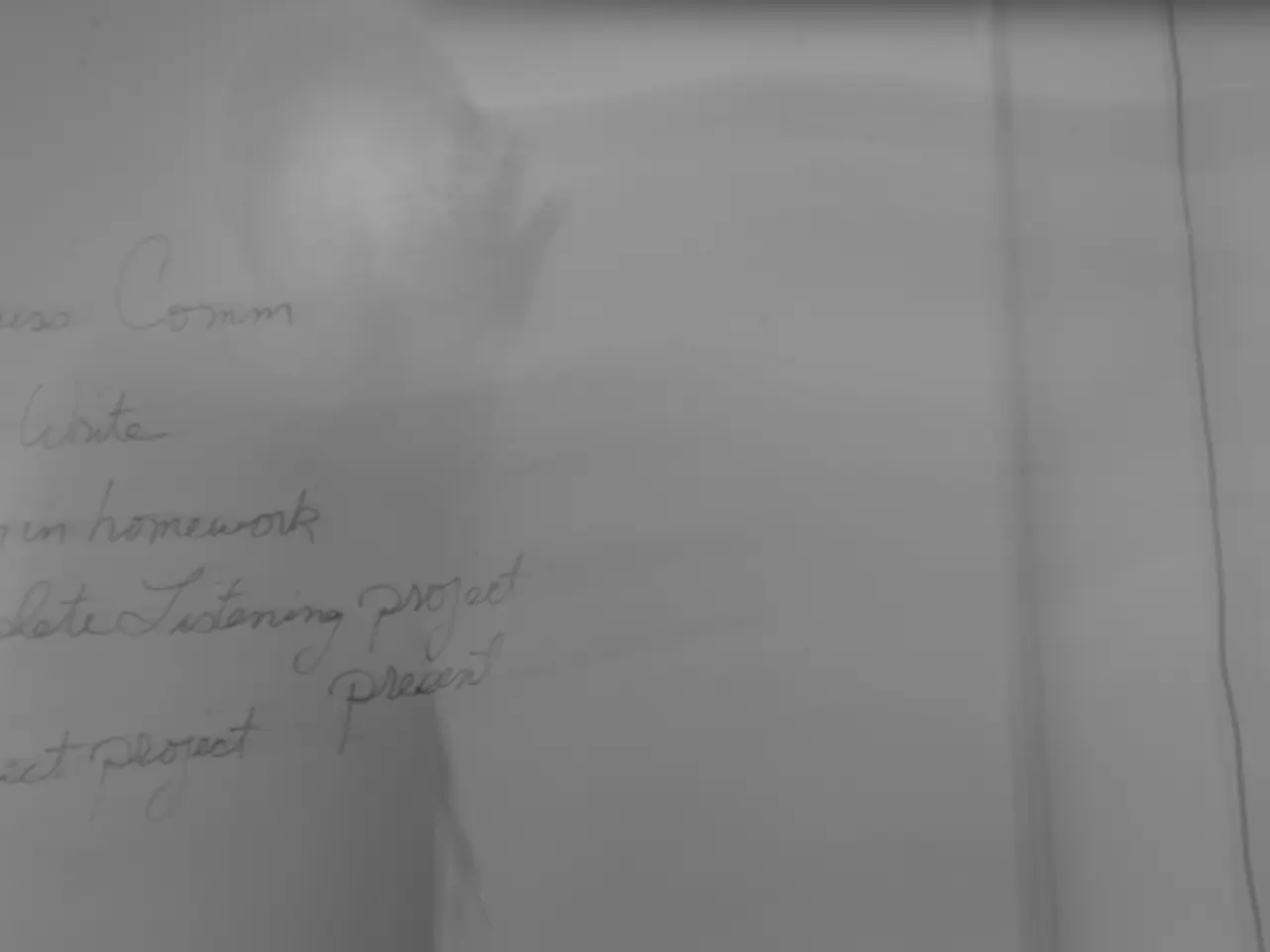Giant Heat Pump for Cologne: Delay in Arrival for the Rhine-Powered Heating Solution - Rhine's Energy: Delayed Activation of Cologne's Major Heat Pump System
In the heart of Europe, Germany is making significant strides in promoting sustainable energy solutions, particularly in the realm of river heat pumps. This shift has been spurred by the advocacy of RheinEnergie CEO, Andreas Feicht, who has been championing the need for standardized, streamlined permitting processes to accelerate the adoption of this eco-friendly technology.
Currently, the deployment of river heat pumps, which utilize water from rivers as a heat source or sink, offering highly efficient heating and cooling, has been hampered by complex and inconsistent regional permitting rules in Germany. To address this issue, the German Federal Ministry for Economic Affairs and Climate Action (BMWK) is taking steps to develop a unified regulatory framework.
The goal is to harmonize environmental impact assessments, water use permits, and safety requirements across states (Länder). To ensure a collaborative approach, the federal government aims to work closely with state authorities, forming joint working groups that include federal, state representatives, industry stakeholders, and environmental groups.
Draft guidelines for uniform permitting criteria are expected to be prepared and opened for public consultation by late 2025. These guidelines will address technical standards for installations, monitoring requirements, and timelines for permit processing.
RheinEnergie and other large utility companies plan to run pilot installations under provisional permits to help refine the standards. Feedback from these pilots will feed into the final regulation design.
The timeline for these developments is as follows:
- Mid to Late 2025: Draft permitting guidelines published for consultation - Late 2025 – Early 2026: Stakeholder consultations and revisions - Mid 2026: Adoption of uniform permitting standards - Late 2026 – 2027: Rollout and implementation at state level - 2027 onwards: Streamlined permitting process operational nationwide
By creating a clear, uniform permitting process, the deployment of river heat pumps is expected to accelerate significantly across Germany. This will support the country’s ambitious climate targets by boosting renewable heating technology uptake.
RheinEnergie's pioneering project, the large river heat pump on the Rhine in Cologne, currently the largest in Europe, is expected to go into operation between the end of 2027 and the beginning of 2028. The heat pump, designed to extract heat from the Rhine water and feed it into the district heating network, could potentially supply up to 50,000 households with district heating.
Despite the progress, concerns about negative impacts on wildlife, particularly the release of filtered fish and small creatures back into the wild, remain. These issues are being addressed through careful planning and collaboration between stakeholders.
Andreas Feicht's advocacy is pivotal in pushing for regulatory clarity and faster approval times, which can reduce project delays and investment risks. His recommendations for the development of nationwide uniform permitting standards and the shortening of the duration of procedures are crucial steps towards a greener, more sustainable future for Germany.
- The German Federal Ministry for Economic Affairs and Climate Action (BMWK) is developing a unified regulatory framework to streamline permitting processes for river heat pumps, aiming to harmonize environmental impact assessments, water use permits, and safety requirements across states.
- RheinEnergie and other large utility companies plan to collaborate with the federal government, running pilot installations under provisional permits to help refine the standards for the deployment of river heat pumps, which utilize water from rivers for highly efficient heating and cooling.
- The draft guidelines for uniform permitting criteria are expected to be prepared and opened for public consultation by late 2025, addressing technical standards for installations, monitoring requirements, and timelines for permit processing.
- The deployment of river heat pumps is expected to accelerate significantly in Germany as a result of the streamlined permitting process, supporting the country’s ambitious climate targets by boosting renewable heating technology uptake in the industry, and contributing to the growth of environmental science and finance, particularly in the realm of renewable energy.




